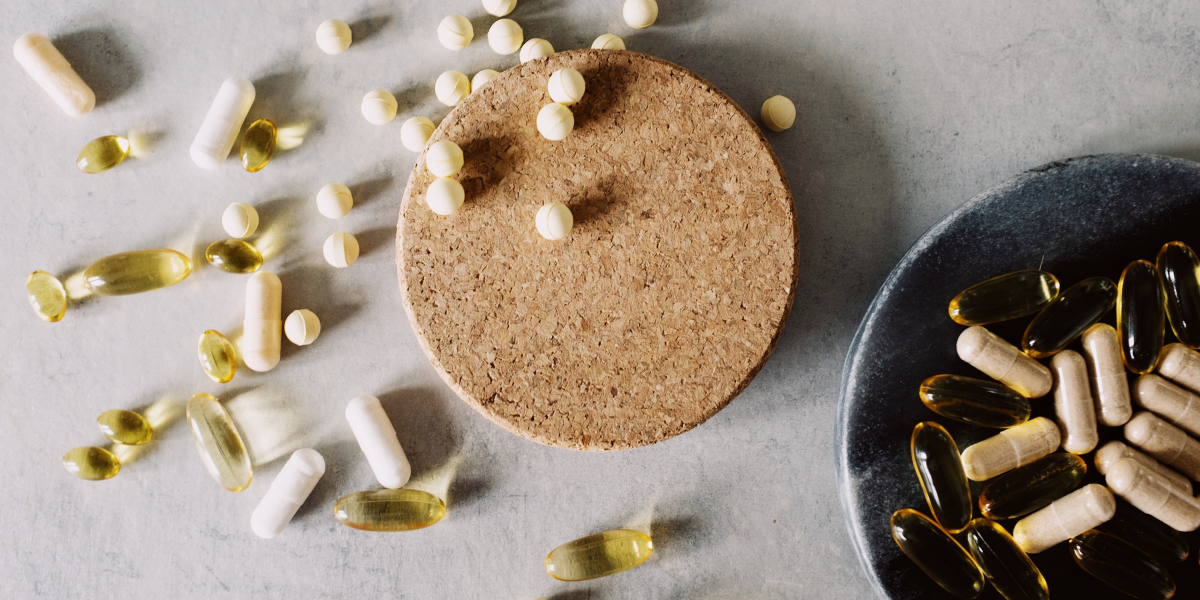
Can Supplements Boost Your Energy?
It’s all too easy to keep reaching for caffeine in an effort to power through those last hours of the day. However, while caffeine may perk you up, constant caffeine consumption isn’t a sustainable approach to actually increasing your energy levels.
With so many different supplements on the market, you might be wondering if a vitamin or mineral could be the key to unlocking a higher energy threshold. Keep reading to learn more about how supplements can boost energy levels and which of these supplements may be the best option for you.
What Are the Most Common Causes of Fatigue?
Some of the most common causes of fatigue include:
- Poor sleep. Many people don’t get the recommended amount of sleep needed to feel rested, and even those who do may still wake up tired. It’s important to get enough sleep, but it’s also important to get good quality sleep - sleeping eight or more hours and staying asleep during that time.
- Sedentary lifestyle. If you’re not exercising regularly, you’re not conditioning your body for activity, making it harder to find the momentum to get going. Additionally, a sedentary lifestyle can cause a depressed mood, which diminishes motivation to exercise.
- Poor diet and nutritional deficiencies. Your health and energy levels are largely influenced by the food you put in your body. If you’re not eating correctly or taking the right supplements, you may be deficient in certain nutrients that can help improve energy levels.
What’s Wrong with Using Caffeine for Energy?
It’s almost instinctual for most people to reach for a cup of coffee or can of soda when energy levels are low. There isn’t necessarily anything wrong with drinking some caffeine throughout the day, but it may not be the most effective approach, and it can come with some drawbacks—especially when overdone.
Caffeine is an effective method to help you perk up in the morning or afternoon, but remember that it usually only provides short-term energy. Many people experience a “caffeine crash” a few hours after consuming caffeine, which can make them feel even more tired than they felt initially. Caffeine can also be very addictive: if you drink it frequently, you may start to build a tolerance for it, requiring you to consume more and more to feel an effect.
If your energy woes are caused by an underlying issue such as chronic disease or a nutritional deficiency, caffeine will act as a “band-aid solution” rather than fixing the root of the problem. It’s important to use caffeine in moderation for subtle energy support rather than leaning on it as a cure-all solution for chronic fatigue.
How Can Supplements Increase Energy Levels?
Taking supplements can be a method to ensure your body is getting the proper amounts of all the nutrients it needs to function optimally. Supplements have differing ways to support your energy levels. For example, some support cellular health, meaning they help your cells convert fuel to energy. Others help to support healthy sleep, which can aid in energy upon awakening.
What Supplements Work Best to Boost Energy?
Some of the best supplements to take to help boost energy levels include B vitamins, magnesium, iron, vitamin D, and adaptogens.
Vitamin B
Vitamin B is required for cells to produce energy. When you’re getting adequate amounts of vitamin B, your body can properly form red blood cells, which help transport oxygen throughout the body. This oxygen helps to fuel energy production on a cellular level.
If you’re not getting enough vitamin B, you will likely experience symptoms such as fatigue and weakness. People who eat a vegetarian or vegan diet are more likely to be low in vitamin B since this vitamin is naturally found in animal products.
Magnesium
Magnesium helps in bodily processes such as blood glucose control, nerve function, and energy production. It may also help to support healthy sleep habits. Adding a magnesium supplement to your daily routine may help you sleep better and help you wake up feeling refreshed and naturally energized.
Iron
Low iron levels can cause you to feel less energized since iron is responsible for helping with oxygen circulation in the body. Being deficient in iron may also cause impaired cognitive abilities and poor immune function.
To ensure you get enough iron, you should strive to incorporate iron-rich foods—such as red meat, beans, and spinach—into your diet. Your doctor or pharmacist may recommend iron supplementation if your levels are found to be very low or if you are at a higher risk for having low iron (such as during pregnancy).
Vitamin D
Your skin makes vitamin D when it is exposed to UV rays. Having low vitamin D levels can cause poor bone health, muscle weakness, and an increased risk of certain illnesses. Vitamin D can boost energy levels and help your muscles work properly.
Vitamin D deficiency affects about 1 billion people worldwide. If you think you may be deficient in vitamin D, talk with your doctor or pharmacist about taking a supplement.
Adaptogens
Adaptogens have long been associated with increasing energy, enhancing energy, and reducing mild fatigue. They encourage physical work capacity and mental performance. Energy Xtra is an adaptogen formula for physical and mental stamina.
Contact Cornerstone Pharmacy & Compounding About Energy-Boosting Supplements
Supplements could potentially be an effective approach to boosting your energy levels. If you’re deficient in certain nutrients, taking a vitamin supplement to fill in those gaps may be what your body needs to power through the day and stay on top of productivity.
If you’re considering taking supplements to improve your energy levels, we encourage you to reach out to the medical professionals at Cornerstone Pharmacy & Compounding. Our pharmacists offer supplement consultations to help you determine the best products for you. To help you start on the path toward a healthier you, we also offer 15% off your first supplement when you consult with us.

